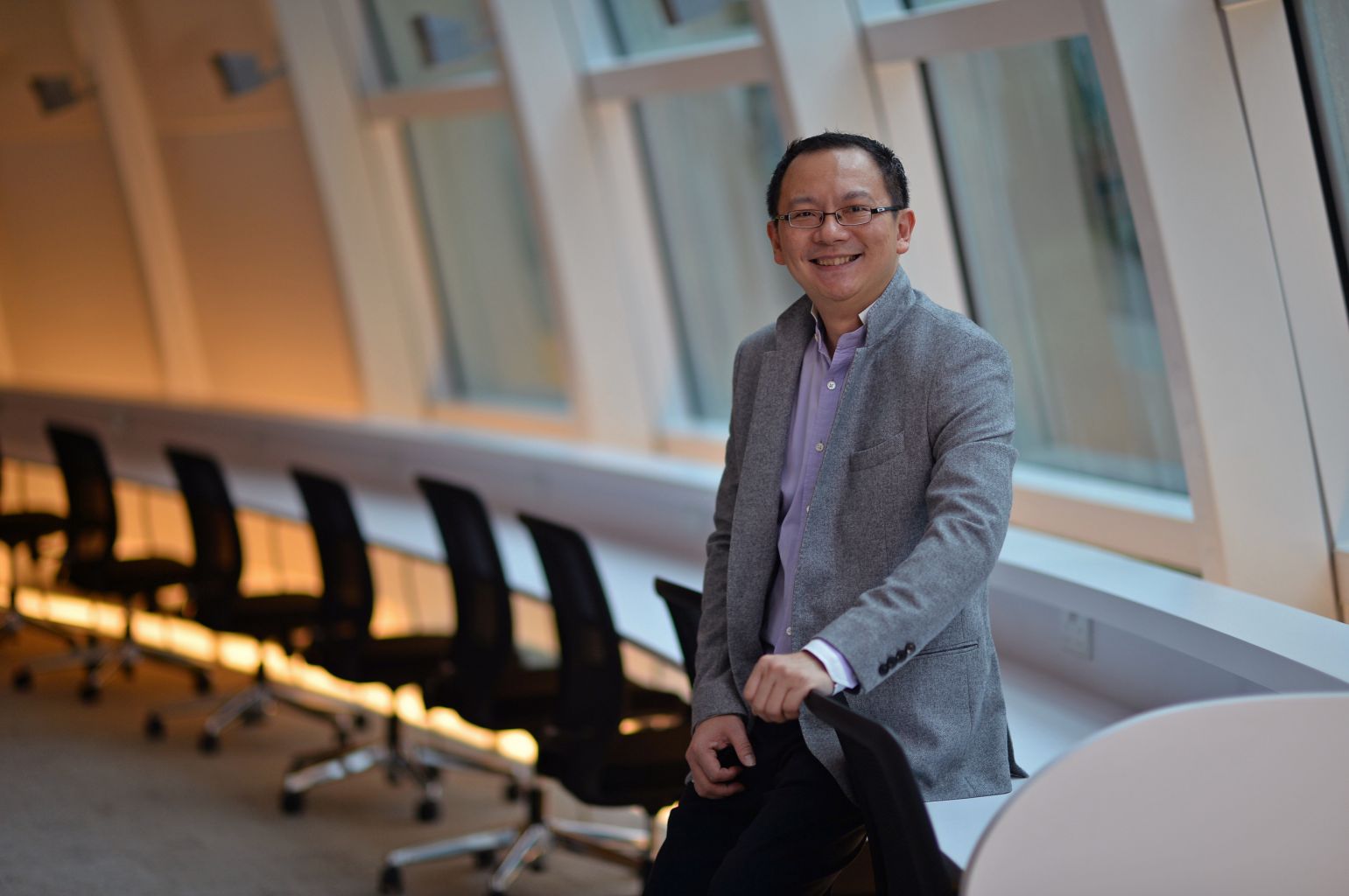SPONSORED CONTENT
New and revamped master’s programmes
SMU is committed to nurturing future entrepreneurial leaders for the knowledge-based economy
Sign up now: Get tips on how to help your child succeed

Prof Themin Suwardy says everyone needs to plan for, and invest in, their own life-long learning journey.
PHOTO: CHONG JUN LIANG
To equip students for today's ever-changing and dynamic economic environment, Singapore Management University (SMU) ensures its master's programmes are relevant and diverse.
The school, which has 20 professional master's programmes, will offer an additional one next year. It will also expand and revamp some of its existing offerings.
"The new programmes, and other programme renewals and enhancements, are made to ensure the relevancy of the courses to help students gain new knowledge and insights, upgrade skills and be more versatile in their career progression," says Associate Professor Themin Suwardy, the dean for Postgraduate Professional Programmes at SMU.
Making it count
In August this year, the institution will offer a new Master of Science in Accounting (Data and Analytics) course.
Prof Suwardy, 46, says it is the first master's degree programme in Asia that will help accounting professionals widen their skill sets to deal with massive amounts of data and obtain insights needed for informed decision making.
The current Master of Science in Economics programme will also be expanded. It will offer two new tracks in Econometrics and Quantitative Economics in addition to a revamped Applied Economics track.
These are just some of the changes being made this year.
The master's programmes at SMU can be broadly classified into general management and specialised master's programmes, which include disciplines such as finance, communications, accounting, law and information technology.
These include SMU's Executive Master of Business Administration (EMBA), which was ranked 24th globally in the Financial Times (FT) EMBA Ranking 2017, a jump of eight places from 32nd position in 2016.
SMU's Master of Science in Wealth Management programme is third globally in the FT Masters in Finance Post-experience Ranking 2017.
SMU is the only institution in Asia to be ranked, positioned just after the London Business School and the University of Cambridge's Judge Business School.
SMU's Master of Science in Applied Finance programme is fourth among Asian business schools and 44th globally in the FT Masters in Finance Pre-experience Ranking 2017.
Asked why he thinks people pursue postgraduate studies, Prof Suwardy says a combination of personal growth and opportunities for career development and advancement are usually the main reasons.
He adds: "Some working professionals may choose to start a new career in a new field that requires strong specialised skills such as accounting or finance; others are looking to progress to more advanced leadership roles within their current industry.
"Gone are the days when obtaining a bachelor's degree was the pinnacle of one's learning accomplishments. We need to plan for, and invest in, our own lifelong learning journey."
Occasionally attending in-house training courses and workshops may be sufficient to help one learn and upgrade on the margin, but a higher degree is the answer if a new level of expertise is needed, he says.
"A postgraduate education helps to broaden exposure, be it through studies, overseas stints or networking with classmates and faculty with different work experiences," he adds.
It also helps to sharpen students' analytical skills and prepares them to cope with more complex and unknown problems of the future.
"The professors you will learn from are not just experts in their own discipline, they also bring with them a wealth of industry experience and connections. You will be in a position to readily apply the things you learn in your workplace," he says.
Get the right fit
Another advantage of studying at SMU is the convenient location in the city's Central Business District (CBD).
"There is a dynamism about being in the heart of the city, next to the CBD and arts precinct," says Prof Suwardy.
For those thinking about taking up a postgraduate programme, he says it is important to find an institution and a programme that matches one's goals and lifestyle.
For example, those who travel extensively and are not able to attend regular classes should look for programmes that are more flexible and are perhaps taught in intensive block periods.
"If you are looking for programmes that allow you to enter a new industry, make sure the programme has the appropriate accreditations and recognition," he says.
To those who are holding back from pursuing postgraduate education because they are trying to find a perfect time to start, he says: "Unfortunately, there is never going to be a perfect time.
"You will learn to create time and balance between the demands of work, studies and personal commitments. With the right mindset, you will be surprised by how you can create more capacity to do the things you want, and need, to do."
He says SMU is committed to nurturing graduates who are creative and can be entrepreneurial leaders for the knowledge-based economy.
He adds: "Our goal is to provide a transformative experience in all of our programmes. We are not just putting together programmes that earn you a postgraduate degree.
"Our goal is to transform our students in terms of their world views, competencies, strategic vision, spirit of collaboration and appetite for problem-solving."


